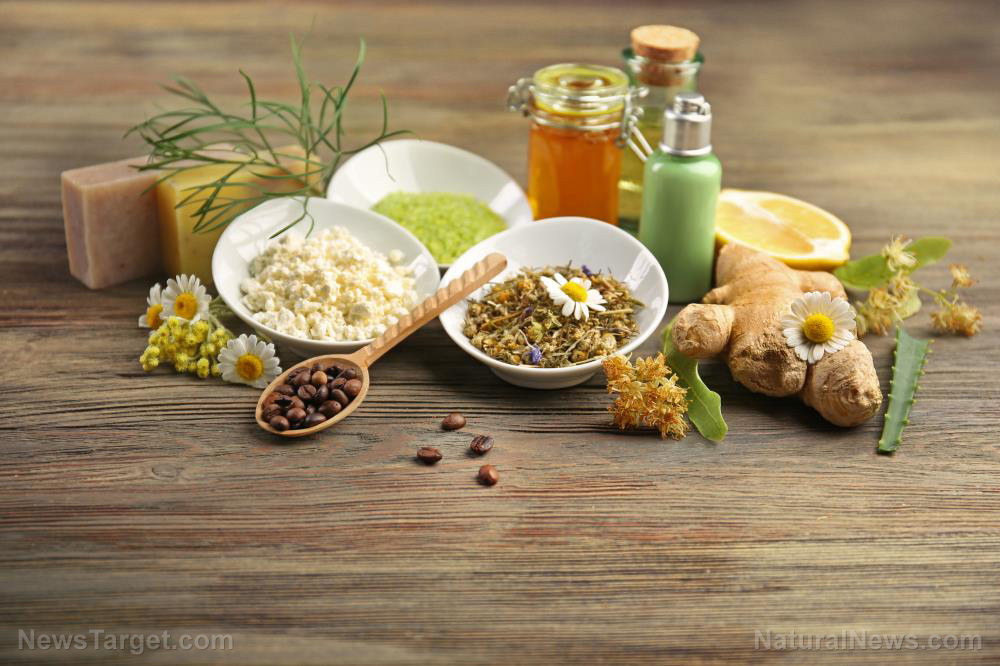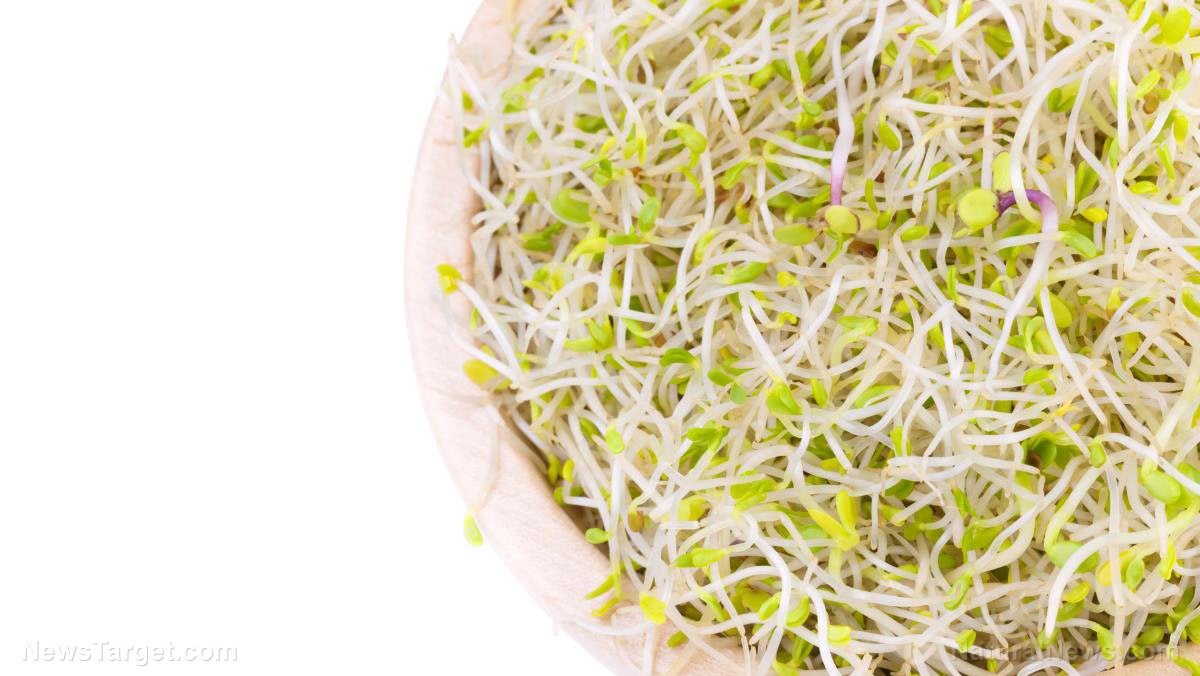Demand for plant-based protein rising amid COVID-19 pandemic
06/24/2020 / By Divina Ramirez

Consumer habits are changing due to the ongoing pandemic. Besides cleaning out toilet paper aisles and going organic, more and more people are opting for plant-based meat substitutes.
In fact, the demand for plant-based sources of protein has seen a resurgence across multiple countries since the beginning of the pandemic, according to recent reports from Reuters. Food suppliers speculate that this sudden boom in demand for plant protein might be due to health concerns regarding the potential dangers of meat consumption amid the pandemic.
But healthcare professionals speculate that there might be more to the resurgence of plant protein than health concerns about meat.
Editor’s note: Beware of all the toxic chemical additives found in artificial meat products. Nearly all popular artificial meats are made with GMOs, monosodium glutamate or other toxic chemicals. Many of the plant-based proteins, such as rice protein, are often contaminated with heavy metals, including arsenic. Fresh, unprocessed meat is actually much cleaner than most commercially available plant proteins.
COVID-19 is propelling the rise of plant-based meat substitutes
Dana Hunnes, a clinical inpatient dietitian at the Ronald Reagan UCLA Medical Center, said that the increased interest in plant protein might be in response to a shortage of meat amid the pandemic.
On the other hand, four in 10 U.S. adults said that a burger made from plants is healthier than a burger made from ground beef, according to a recent report from the International Food Information Council (IFIC) Foundation.
The same report found that consumers considered a product healthier if its nutrition fact label listed more nutrients.
Despite these findings, Kris Sollid, a registered dietitian and the senior director of nutrition communications at the IFIC, said that it’s still difficult to understand the sudden increase in the consumption of plant protein. For one thing, countries don’t go through identical food shortage situations, if at all.
Sollid added that purchasing habits among consumers still differ. For instance, their report found that 40 percent of the consumers studied paid closer attention to finding their go-to products. Thirty-eight percent, on the other hand, paid more attention to their budget for groceries.
Despite different possible factors influencing the resurgence of plant protein, the fact remains that there is an increased interest in plant-based meat substitutes amid the pandemic.
Health benefits of plant-based sources of protein
Food fads come and go, but plant-based meat substitutes aren’t one of them. Hunnes states that there are certain nutritional and health benefits to opting for plant protein instead of animal protein. Here are some of them:
Enhances nutrient absorption
Sprouts are a great source of protein, and the best part is that our bodies are able to absorb these proteins better than animal protein. This means that our bodies are able to use the protein better to build muscles and repair tissues.
Offers high amounts of iron
Beans and legumes are also rich in iron on top of their high protein content. This iron is different from meat iron because our bodies do not absorb plant iron if our iron stores are still full. In comparison, meat iron continues to be absorbed regardless of iron stores. Studies found that too much iron causes DNA damage linked to dementia, diabetes and cancer.
Contains healthier fats
Protein-rich nuts are also rich in healthier monounsaturated fats (omega-3s) that guard against inflammation due to free radicals. These fats are also better absorbed in the gut compared to the saturated fat found in meat.
Sustains fullness for longer periods
Beans, legumes, nuts and other plant-based foods can sustain feelings of fullness for longer periods because of their high fiber content. There is no fiber in meat, milk and other animal products.
Promotes gut health
The fiber in plant-based foods promotes the proliferation of bacteria in the gut that aid digestion. Besides protecting against common gastrointestinal issues, fiber also inhibits the absorption of too much glucose and cholesterol that can lead to diabetes and heart disease.
Stalls aging
Plant protein is free from the carcinogens and harmful substances that are sometimes present in meat and fish. Plant-based foods are also great sources of antioxidants that stall aging and protect against age-related diseases.
Increases lifespan
Current studies maintain that getting protein from plants instead of red and processed meats can prolong a person’s lifespan.
Protects against chronic diseases
Sources of plant protein are also often full of essential nutrients that can fight off chronic diseases, including heart disease and cancer. (Related: Done correctly, a plant-based diet full of “real” food can help PREVENT diabetes.)
Boosts athletic performance
Plant-based diets are the norm for most professional athletes. One reason for this is that plant protein is cleaner than animal protein. The monounsaturated fats in plant-based foods also don’t add up to pounds on the scale.
Aids in weight loss
In sustaining fullness, the fiber-rich plant-based protein helps suppress appetite and indulgences. Most plant-based foods also lack the saturated fat found in meat that can lead to weight gain.
Minimizes exposure to pathogens
Certain chemicals found in red and processed meats heighten the risk of cancer. N-nitroso compounds (NOCs), for instance, are found to possess carcinogenic effects that can lead to cancers of the stomach, esophagus and colon. Meat and animal products are also notorious for containing salmonella bacteria that can infect the intestine, causing diarrhea.
The future of plant-based protein
The pandemic has caused people to become more conscious of their eating habits and food preferences, resulting in an increased interest in plant protein. But according to Hunnes, it’s still difficult to determine if this sudden interest is due to meat shortages or a genuine desire to eat healthier foods.
There’s no telling for sure until the pandemic ends for good, and it’s possible that people might go back to their old eating habits in due time. But despite the odds, nutritionists and healthcare professionals continue to hope that this increased interest in plant protein carries on after the pandemic.
Read the latest stories about the current COVID-19 pandemic at Pandemic.news.
Sources include:
Tagged Under: anti-aging, clean food, coronavirus, diet, food safety, good diet, heart health, immune system, longevity, natural ingredients, nutrients, nutrition, Organic, pandemic, plant-based foods, plant-based protein, prevention, protein
RECENT NEWS & ARTICLES
COPYRIGHT © 2017 ORGANICS NEWS


















